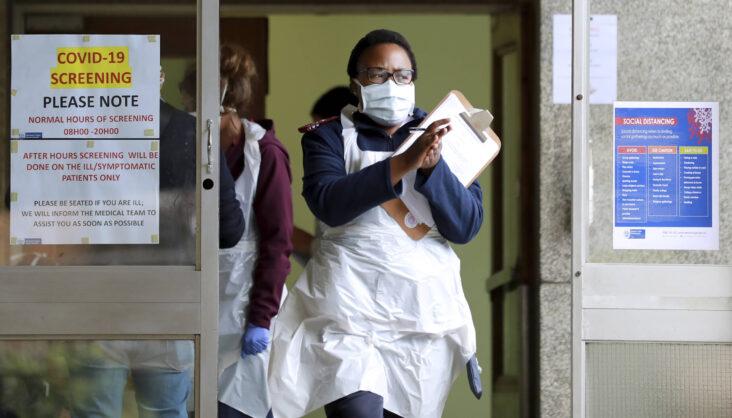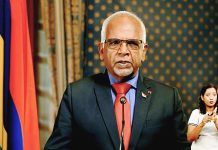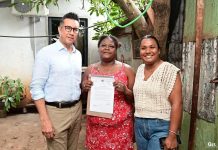Africa-Press – Mauritius. A warning from the United Nations Development Programme (UNDP) that African economies face complete collapse in a worse-case scenario from the coronavirus pandemic, has forced policymakers to look into the profound challenges about to break over the continent.
South Africa has been under lockdown since 26 March; yet there are nightly street parties taking place, with revellers even chanting the name of the virus.
These very same people are often crowded into informal housing where water and sanitation are scarce and other diseases – notably AIDS and tuberculosis – are already endemic.
Even so, government messages about coronavirus are not getting through. If this is the case in South Africa – with its relatively strong institutions and swift central-government response – what is about to happen elsewhere?
For Africa, coronavirus is a catastrophe in the making – and not just a healthcare crisis, but a threat to the cohesion and resilience of societies themselves.
A recent long read in the Economist unpacked with great detail the democratic deficit and demographic divide facing the continent.
Young, upwardly-mobile populations – with increasingly high levels of smart-phone usage – are already facing off against older, entrenched elites. The result is weak social contracts and low trust, precisely at the moment when governments need to maximise cohesion and populations’ willingness to listen.
When mass casualties start to overwhelm already hard-pressed healthcare services – most African countries have severe shortages of ventilators and intensive-care beds – a new and equally deadly epidemic will take hold: fear.
Fear of coronavirus is almost as great a threat as the disease itself. The Director General of The World Health Organisation, Tedros Adhanom Ghebreyesus, has talked of combating the “infodemic” alongside the pandemic.
Social media is already alight with speculation liable to drive public panic; while even the more ‘respectable’ newspaper websites are filled with sensationalist stories to drive traffic in an effort to mitigate their own uncertain future.
The most powerful weapon in the fight against coronavirus is public trust. Reinforcing this means getting ahead of the downward spiral of contagious fear and social breakdown with responsive communications programmes tailored to local conditions and highly-varied populations.
Early, accurate, and credible communication is key. Yet, although delivering factual messages is a large part of the mix, it’s not the same thing as managing emotional responses.
No one knows for sure how populations will react under extreme pressure, when anxiety and panic overtake rational thinking. It is therefore essential to read the emotional landscape – and better understand people’s deeper motivational drivers – before designing public-information campaigns.
To ascend this learning curve, African governments should urgently conduct rapid, large-scale behavioural research to answer the most fundamental questions:
Do people understand the virus – how it spreads, what the symptoms are, and how they can help slow its progress? Do they fear most for themselves or their families? If they don’t trust the government, who do they trust? Which sections of the population are most minded to help – and which least? What type of countermeasures will meet with popular support – and which won’t?
Public-health officials across Africa face a particularly delicate balancing act when it comes to the timing and enforcement of ‘lock-down’ measures. South Africa, for example, is using armed force to restrict freedom of movement and enforce social distancing on a mass scale.
Yet telling people who live in cramped, makeshift houses – with no access to running water or private toilet facilities – to stay at home itself poses the most extreme test of social cohesion.
Getting it wrong will lead not only to higher mortality but also to civil unrest – potentially tearing the social fabric for a generation. Some governments may fall; others could become irreversibly authoritarian.
It’s hard to know which is the worse outcome. Fortunately, there is also a great deal that governments can do to ‘nudge’ people in the right direction – with a focus on reinforcing positive actions and counteracting destructive behaviours.
Lessons can be drawn from different communications campaigns across the globe: mass-media advertising, televised press conferences, social-media engagement, in-community outreach, digital ‘influencers’ and grass-roots ‘guerrilla’ marketing techniques.
Appealing to people’s better nature can be a powerful incentive. In the UK, for example, the National Health Service filled its national quota for volunteers twice over within hours of launching its appeal. This surge of community spirit will surely leave a positive social imprint for years to come.
A pandemic response that seeks to leverage such positive reserves of national and local sentiment – mobilising populations behind government efforts rather than against them – is all the more important given what’s at stake in Africa.
The social and political impact of coronavirus will be the defining moment for a generation or more. Its memory will be deeply entwined with the level and type of government response.
Those which are positive and decisive – identifying with populations and tapping into the ties that bind communities and nations – will be the relative winners.
Those which wait for the wave to break, then layer additional hardship on their already-suffering people, will not be looked on as kindly – if they survive at all.
For More News And Analysis About Mauritius Follow Africa-Press







